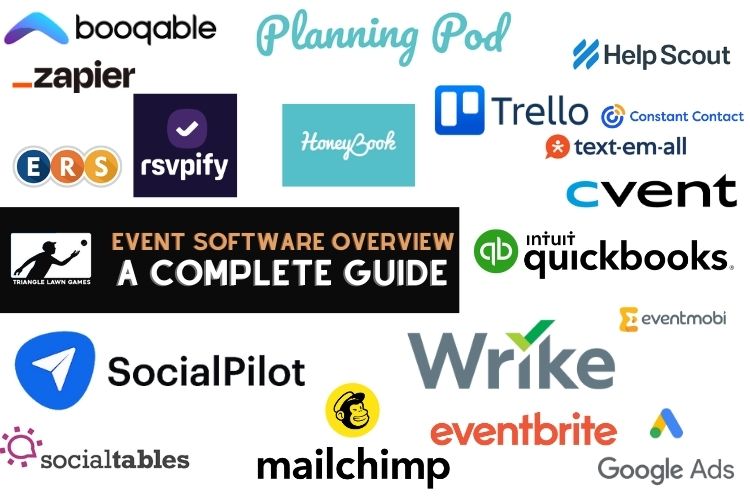Running events is straight up difficult. At Triangle Lawn Games we are a very small part of thousands of events a year, and we see how much work and effort it takes make an event successful. Technology has made some things easier, but it still takes showing up and making it happen.
So with that said, we wanted to review and highlight a number of software choices that are used in the event planning and management space. Whether you are new to the business and trying to learn what tools you need to begin OR you are a seasoned pro trying to find the next element of your software stack, we think this article can be helpful and help get your creative juices flowing.
What is an Event Management System?
Lets start with the basics. An Event Management System (EMS) is a comprehensive software solution designed to assist in planning, organizing, and managing events of all sizes and shapes. It streamlines the entire event lifecycle, from initial planning and promotion to execution and post-event analysis. Event management systems are versatile tools used by event planners, organizers, and businesses across various industries to ensure smooth coordination and successful outcomes for conferences, seminars, trade shows, weddings, and other events. Not all of the software we highlight are specific to the event world, but are frequently used as such.
We have segmented our report on event professional software into the following groups, if you want to skip to that section click the links below:
Why Would an Event Professional Need Software?
Event professionals often use software for several reasons, as it provides numerous advantages in planning, organizing, and executing successful events. Here are some key reasons why event professionals would want to use software:
Efficiency and Time Savings
Event management software automates many time-consuming tasks such as attendee registration, ticketing, and data entry. This efficiency allows event professionals to focus on strategic planning and creating a memorable experience for attendees.
Attendee Management
Software helps in efficiently managing attendee information, tracking registrations, and handling communication with participants. It provides a centralized database for easy access to attendee details, preferences, and engagement history.
Task and Project Management
Event planning involves multiple tasks, deadlines, and collaborations. Software tools offer features for task management, project collaboration, and timeline tracking, ensuring that all aspects of the event are well-coordinated.
Marketing and Promotion
Event professionals use software for marketing campaigns, including email marketing, social media promotion, and online advertising. These tools help in reaching a wider audience, creating buzz, and driving attendance.
Financial Management
Event management software assists in budgeting, expense tracking, and financial reporting. It helps professionals stay within budget constraints, monitor revenue streams, and make data-driven financial decisions.
Venue Management
Software allows event professionals to manage venue details, including booking, floor plans, and logistics. This ensures seamless coordination with the venue and helps avoid potential logistical challenges during the event.
Communication and Engagement
Effective communication is vital in event planning. Software tools offer communication features such as email campaigns, notifications, and attendee messaging, enhancing engagement before, during, and after the event.
Risk Mitigation
Software can help identify and mitigate potential risks by providing real-time updates on various aspects of the event. This proactive approach enables event professionals to address issues promptly and ensure a smooth event execution.
Scalability and Flexibility
Event professionals often work on events of varying sizes and complexities. Software solutions are scalable and adaptable, accommodating the unique needs and requirements of different events.
In summary, event professionals use software to streamline their workflows, enhance efficiency, and deliver successful events by leveraging technology to handle various aspects of event planning and management.
Efficient Task Management
Event planning involves numerous tasks, deadlines, and collaborations. Software, such as project management tools like Asana or Trello, can help professionals organize, assign, and track tasks efficiently, ensuring nothing falls through the cracks. Here are some of our favorite picks for task management software for event professionals:
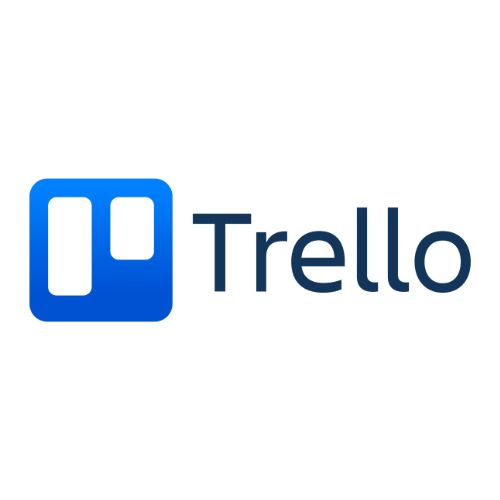
Trello
Trello is a popular project management tool that employs a card and board system to help individuals and teams organize tasks and projects visually. Users can create boards for different projects, add tasks as cards, and organize them into customizable lists. Trello’s intuitive interface makes it easy to track progress, assign tasks, and collaborate seamlessly with team members. It is widely used across various industries for its simplicity and flexibility.
Pros of Trello:
User-Friendly Interface: Trello’s drag-and-drop interface is user-friendly, making it easy for individuals and teams to quickly adapt and start using the platform.
Customizable Workflow: Users can create boards, lists, and cards that suit their specific workflow, allowing for flexibility in organizing and managing tasks.
Integration Capabilities: Trello integrates seamlessly with a variety of third-party tools and applications, enhancing its functionality and compatibility with other software.
Cross-Platform Accessibility: Trello is accessible on multiple devices and platforms, including web browsers, desktop applications, and mobile apps, enabling users to stay connected and updated from anywhere.
Cons of Trello:
Limited Advanced Features: While Trello is excellent for basic project management, it may lack some advanced features and functionalities offered by more complex project management tools.
Scaling Challenges: Trello’s simplicity may become a limitation for larger and more complex projects, as the platform may struggle to handle the scale of extensive workflows. But for planning event with multiple folks working on it then it can be effective.
Dependency Tracking: Trello does not provide robust features for tracking task dependencies or intricate project timelines, which could be a drawback for projects with complex interdependencies. No gantt charts here.
Limited Reporting and Analytics: Trello’s reporting and analytics capabilities are relatively basic, making it less suitable for organizations that require in-depth performance analysis and reporting. Its not really the type of software that requires reporting per-se.
In summary, Trello is a versatile and user-friendly project management tool suitable for small to medium-sized projects, but it may have limitations for more complex or enterprise-level needs.
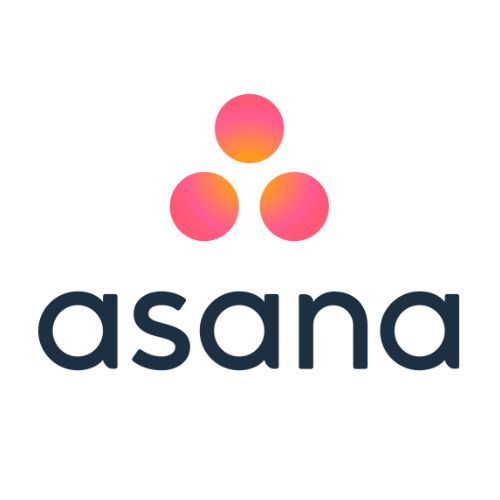
Asana
Asana is a widely-used project management platform designed to help teams and individuals organize and manage tasks, projects, and workflows. With a user-friendly interface, Asana allows users to create projects, add tasks, set deadlines, and collaborate in a visually intuitive manner. It offers a variety of views, including lists, boards, and timelines, enabling flexibility in project planning and tracking. Asana is popular among diverse teams for its scalability and adaptability to different work styles and project complexities.
Pros of Asana:
Intuitive Interface: Asana’s clean and intuitive interface makes it easy for users to navigate and quickly understand how to use the platform, facilitating efficient onboarding.
Versatile Project Views: Asana provides multiple project views, including list, board, and timeline views, allowing users to choose the format that best suits their workflow and project requirements.
Powerful Task Management: With features like task assignments, due dates, and priority settings, Asana enables effective task management, ensuring that team members stay organized and on track.
Integration Capabilities: Asana integrates seamlessly with a wide range of third-party applications and tools, enhancing its functionality and enabling users to connect their workflows with other essential platforms.
Cons of Asana:
Learning Curve for Advanced Features: While Asana is user-friendly, mastering its more advanced features may take time, and some users might find it challenging to leverage the platform’s full capabilities.
Limited Free Version Features: The free version of Asana has limitations on the number of team members and integrations, potentially making it less suitable for larger teams or organizations with extensive collaboration needs.
Complexity for Simple Tasks: For users with straightforward task management needs, Asana’s extensive features may feel like an unnecessary level of complexity.
Timeline View Limitations: While Asana offers a timeline view, it may not provide the same level of sophistication as some dedicated project management tools for complex project timelines and dependencies.
In summary, Asana is a powerful and versatile project management tool, suitable for a wide range of users and projects. However, users should be aware of the learning curve for advanced features and consider their specific team size and collaboration requirements.

Wrike
Wrike is a comprehensive project management and collaboration platform designed to streamline work processes and enhance team productivity. Offering a range of features such as task management, document collaboration, and project tracking, Wrike caters to teams of all sizes. With a customizable workspace, users can organize tasks and projects according to their preferred workflows and project structures. Wrike also provides interactive Gantt charts and real-time collaboration features, making it suitable for teams with complex and dynamic project requirements.
Pros of Wrike:
Versatile Project Views: Wrike offers diverse project views, including Gantt charts, Kanban boards, and tables, providing teams with flexibility in how they visualize and manage their projects.
Advanced Reporting and Analytics: Wrike’s reporting capabilities allow users to generate detailed reports on project progress, workload, and team performance, providing valuable insights for data-driven decision-making.
Customizable Workflows: Wrike’s highly customizable platform allows users to adapt the software to their specific needs, ensuring that workflows align with the unique requirements of different projects and teams.
Integration Capabilities: Wrike integrates seamlessly with a wide array of third-party applications, allowing users to connect their work processes with other essential tools and systems.
Cons of Wrike:
Learning Curve: Wrike’s extensive feature set can result in a steeper learning curve, especially for new users, and may require additional time for effective onboarding.
Pricing Complexity: The pricing structure of Wrike can be complex, with various plans and options available. This complexity may make it challenging for users to choose the most cost-effective plan for their specific needs.
Resource Management Limitations: Some users note that Wrike’s resource management features could be more robust, particularly for organizations with complex resource allocation requirements.
Mobile App Limitations: While Wrike has a mobile app, some users find that certain features and functionalities may be limited compared to the desktop version, impacting the user experience for those who rely heavily on mobile devices.
In summary, Wrike is a robust project management platform with advanced features, suitable for teams looking for a customizable and data-driven solution. However, users should be prepared for a learning curve and carefully assess pricing plans based on their specific requirements.
Streamlined Communication
Communication is key in event planning. Software tools like Slack or Microsoft Teams provide centralized communication channels, making it easier for event teams to collaborate, share updates, and maintain open lines of communication.
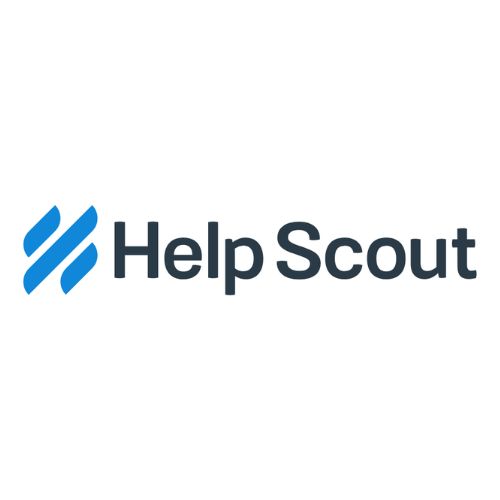
Helpscout
Help Scout is a customer support and help desk software designed to streamline communication and improve customer service. It centralizes customer conversations from various channels, such as email, chat, and social media, into a shared inbox for efficient team collaboration. Help Scout focuses on providing a personalized and human-centric approach to customer support, offering features like automation, knowledge base management, and performance analytics.
Pros of Helpscout:
User-Friendly Interface: Help Scout boasts an intuitive and user-friendly interface, making it easy for customer support teams to manage and respond to inquiries promptly.
Shared Inbox: The shared inbox feature allows teams to collaborate seamlessly, ensuring that all team members have access to customer conversations and can provide consistent and informed responses.
Automation and Workflows: Help Scout offers automation tools and customizable workflows to streamline repetitive tasks, prioritize tickets, and improve overall efficiency in handling customer queries.
Knowledge Base Management: The platform includes robust knowledge base features, enabling organizations to create and maintain a comprehensive self-service resource for customers, reducing the volume of incoming support requests.
Cons of Helpscout:
Limited Advanced Features: Some users may find that Help Scout lacks certain advanced features offered by more comprehensive customer support platforms, potentially limiting its suitability for larger enterprises with complex requirements.
Integration Limitations: While Help Scout integrates with various third-party applications, the number of available integrations may be more limited compared to some competing platforms.
Cost Considerations: Pricing for Help Scout may be perceived as relatively high for some businesses, especially those with a large volume of customer support interactions. It can get expensive if you are needing seats for many employees.
Reporting and Analytics: While Help Scout provides basic reporting and analytics, some users may find the depth and customization options in these features to be less extensive compared to other customer support solutions.
In summary, Help Scout is a user-friendly customer support platform with a focus on personalized interactions. It is well-suited for businesses looking for a straightforward solution with strong collaboration features, but organizations with complex needs may want to carefully evaluate its feature set and pricing structure. TLG is a user of Helpscout and we love it.
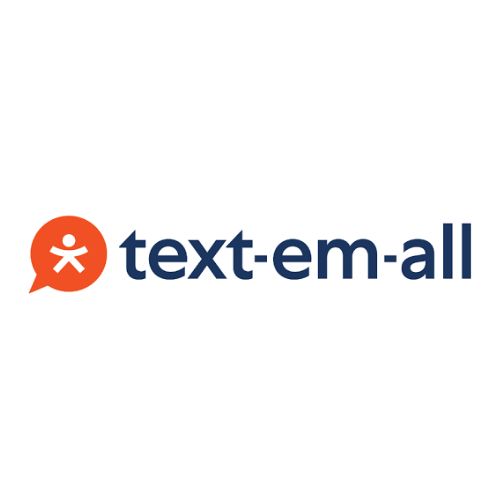
Text Em’ All
Text Em’ All is an SMS platform that allows users to send out mass texts. This could be used in a variety of ways, for initial communications, reminder texts and more. We have not personally used this system but it looks interesting and is something to explore if you need SMS capabilities. Also check out Twilio.

Google Calendar
Google Calendar is a widely-used online calendar service that allows users to schedule events, appointments, and reminders. It seamlessly integrates with other Google services, such as Gmail and Google Meet, making it easy for users to manage their schedules, receive notifications, and collaborate with others. The platform provides various views, including day, week, month, and agenda, offering flexibility for users to organize their time in a way that suits their preferences. With cross-platform accessibility and real-time synchronization, Google Calendar ensures that users have access to their schedules from multiple devices.
Pros of Google Calendar:
User-Friendly Interface: Google Calendar features a clean and intuitive interface, making it easy for users to create, edit, and manage events.
Integration with Google Ecosystem: Seamless integration with other Google services, such as Gmail, Google Meet, and Google Drive, enhances collaboration and productivity.
Cross-Platform Accessibility: Users can access their calendars from various devices, including smartphones, tablets, and computers, ensuring flexibility and convenience.
Shared Calendars: The ability to create and share calendars makes it easy for teams or families to coordinate schedules and stay informed about each other’s events.
Cons of Google Calendar:
Limited Advanced Features: While suitable for personal and basic business use, Google Calendar may lack some of the advanced features offered by dedicated project management or scheduling tools.
Customization Options: Some users may find the customization options limited compared to more specialized calendar applications, making it less suitable for highly specific needs.
Privacy Concerns: As a Google service, users may have concerns about privacy and data security, especially when it comes to storing sensitive or confidential information in the calendar.
Dependency on Internet Connection: Google Calendar heavily relies on an internet connection, which may be a limitation for users in areas with unreliable or no internet access.
In summary, Google Calendar is a widely accessible and user-friendly calendar tool, particularly suitable for personal and collaborative scheduling needs. However, users with specific requirements or advanced functionality needs may find other specialized tools more suitable
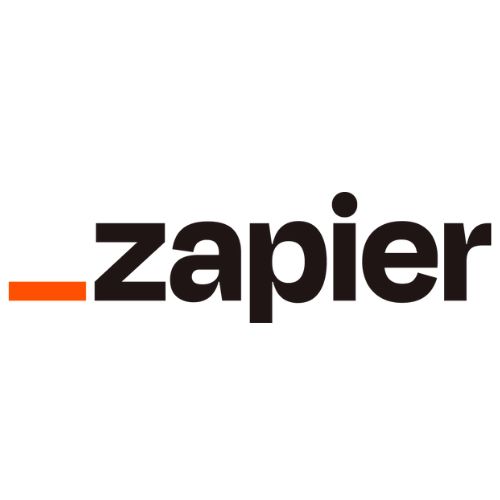
Zapier
Zapier is an automation platform that connects various apps and online services, allowing users to create automated workflows, known as “Zaps.” By setting up triggers and actions between different applications, Zapier enables users to automate repetitive tasks and streamline their workflows without the need for coding. It supports a vast array of apps, making it a versatile tool for businesses and individuals looking to improve productivity through seamless app integrations.
Pros of Zapier:
Wide App Integration: Zapier supports integrations with thousands of apps, making it highly versatile and adaptable to diverse workflows.
No Coding Required: Users can create automation workflows without any coding knowledge, allowing for easy setup and customization.
Automation Customization: Zapier provides flexibility in designing custom automation sequences, allowing users to tailor workflows to their specific needs.
Time and Effort Savings: By automating repetitive tasks, Zapier helps save time and reduce the risk of manual errors, boosting overall efficiency.
Cons of Zapier:
Subscription Costs: While Zapier offers a free plan with limitations, more robust features and higher usage thresholds are available through paid subscription plans.
Processing Delays: In some cases, there might be slight delays in the execution of Zaps, which can impact the real-time nature of certain workflows.
Complexity for Advanced Tasks: While suitable for basic to intermediate automation, users may find Zapier less suitable for highly complex workflows that require advanced logic or conditional branching.
Dependency on External APIs: Zapier’s functionality depends on the APIs of the connected apps, and changes to those APIs may affect the performance of Zaps.
In summary, Zapier is a powerful automation tool that excels in connecting and automating a wide range of applications. Its user-friendly interface and extensive app integrations make it accessible for various users, though potential limitations may arise for users with complex automation needs or specific API dependencies. TLG uses Zapier extensively for our calendar automations, email automations and bookkeeping backend processes.
Ticketing + Registration
Event registration software like Eventbrite or Cvent automates the registration process, allowing attendees to register online, choose ticket options, and receive confirmations automatically. This not only saves time but also reduces the likelihood of errors. Some of our favorite registration software is below.
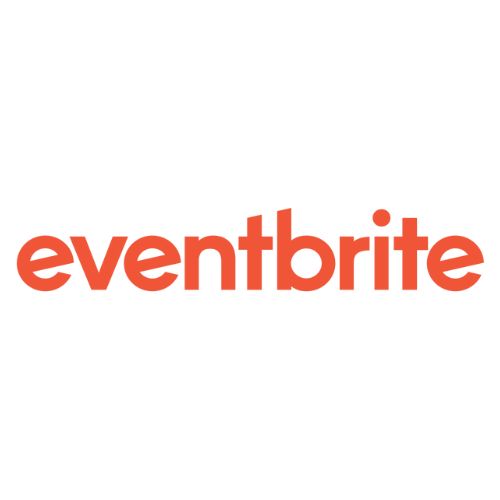
Eventbrite
Eventbrite is a popular online event management and ticketing platform that allows individuals and organizations to create, promote, and sell tickets for events of all sizes. It provides a user-friendly interface for event organizers to set up event pages, manage registrations, and handle ticket sales. Eventbrite also offers features for marketing events, tracking attendance, and analyzing data to enhance the overall event experience.
Pros of Eventbrite:
User-Friendly Interface: Eventbrite’s intuitive platform makes it easy for event organizers to create and manage events without requiring advanced technical skills.
Ticketing and Registration Features: The platform provides robust ticketing and registration tools, allowing organizers to customize ticket types, set pricing, and collect attendee information.
Promotion and Marketing: Eventbrite offers promotional tools, including email campaigns and social media integration, to help organizers reach a broader audience and boost event attendance.
Attendee Tracking and Analytics: Organizers can track attendance, gather valuable data on attendee demographics, and use analytics to gain insights for future events.
Cons of Eventbrite:
Service Fees: Eventbrite charges fees for each ticket sold, which can impact the overall cost for both organizers and attendees.
Limited Customization for Event Pages: While Eventbrite provides templates for event pages, some users may find the customization options limited compared to more advanced event management platforms.
Dependency on Internet Connectivity: Eventbrite relies on an internet connection, which may be a limitation for events in locations with unreliable or no internet access.
Branding Concerns: The Eventbrite branding on event pages and tickets may be a drawback for organizers seeking a more fully branded experience for their events.
In summary, Eventbrite is a user-friendly platform that simplifies the process of organizing and promoting events. While it offers robust features for ticketing and registration, organizers should consider the associated fees and the level of customization needed for their specific events.
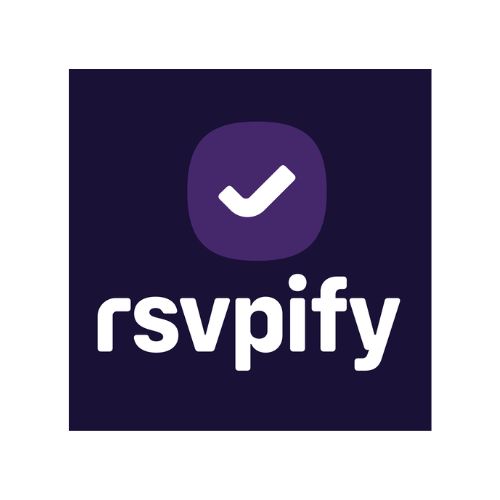
RVSPify
RSVPify is an online platform designed to simplify the process of event planning and guest management. It offers tools for creating customizable event RSVP forms, managing guest lists, and tracking RSVP responses. The platform caters to a variety of events, from weddings and parties to corporate gatherings, providing organizers with an efficient way to collect and manage attendee information.
Pros of RSVPify:
Customizable RSVP Forms: RSVPify allows users to create personalized RSVP forms with various question types, enabling organizers to gather specific information from attendees.
Guest List Management: The platform streamlines guest list management, making it easy to track RSVP responses, meal preferences, and other relevant details.
Integration Capabilities: RSVPify integrates with popular platforms such as Google Sheets and other event planning tools, facilitating seamless data transfer and collaboration.
Attendee Communication: RSVPify provides communication tools, allowing organizers to send updates, reminders, and other information directly to attendees.
Cons of RSVPify:
Pricing Structure: While RSVPify offers a free plan with basic features, more advanced functionalities and customization options may require a subscription, impacting the overall cost for event organizers.
Learning Curve: Users new to event planning software may experience a learning curve when navigating RSVPify’s features, especially when exploring more advanced customization options.
Design Limitations: Some users may find the design customization options limited compared to other event planning platforms, impacting the visual aesthetics of RSVP forms.
Internet Dependency: Like many online event planning tools, RSVPify relies on an internet connection, which may be a consideration for events in locations with limited connectivity.
In summary, RSVPify is a user-friendly platform that offers valuable tools for event organizers looking to streamline RSVP management and enhance communication with attendees. While its free plan provides basic functionality, users should assess their specific needs and consider the potential costs associated with advanced features.
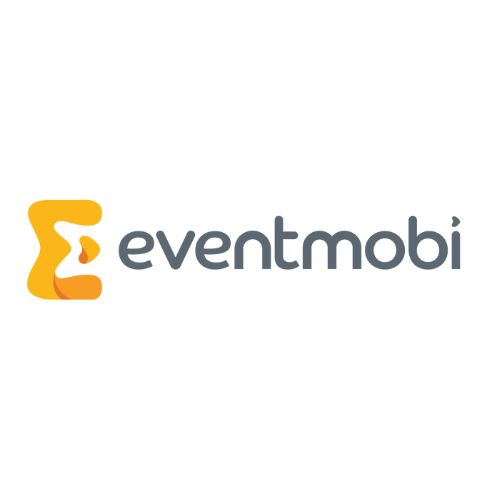
Eventmobi
EventMobi is an event management platform that provides comprehensive solutions for planning, engaging, and analyzing events. It offers tools for building customizable event apps, managing attendee registrations, and facilitating networking and interaction among event participants. EventMobi is designed to enhance the overall event experience by providing organizers with features for content delivery, live polling, and real-time analytics, making it suitable for conferences, trade shows, and corporate events.
Pros of Eventmobi:
Customizable Event Apps: EventMobi allows organizers to create tailored event apps with features such as agendas, speaker profiles, and interactive maps, enhancing attendee engagement.
Registration and Check-In: The platform streamlines the registration process, allowing organizers to manage attendee data and facilitate quick and efficient check-ins.
Engagement Features: EventMobi provides tools for interactive sessions, live polling, and Q&A, fostering engagement and participation among event attendees.
Analytics and Reporting: Organizers can access real-time analytics to track participant engagement, gather insights, and measure the success of various aspects of the event.
Cons of Eventmobi:
Pricing Complexity: Pricing details for EventMobi are not always transparent, and some users may find the pricing structure complex or less predictable.
Learning Curve: While EventMobi is feature-rich, users new to event management platforms may experience a learning curve when navigating its extensive set of tools and customization options.
Dependency on Internet Connectivity: Like many event management platforms, EventMobi relies on internet connectivity, which can be a consideration for events in locations with unreliable or limited internet access.
Customization Constraints: While the platform offers customization options, some users may find certain design and branding limitations when creating event apps.
In summary, EventMobi is a versatile event management platform offering a range of features to enhance the planning and execution of events. Organizers should carefully assess their specific needs, potential costs, and the learning curve associated with the platform’s features.
Marketing + Promotion
Digital marketing tools, such as social media management platforms (Social Pilot, Hootsuite) and email marketing software (Mailchimp, Constant Contact), assist event professionals in promoting their events, reaching a broader audience, and tracking the success of marketing campaigns. We have also included some advertising tools that can be helpful too.
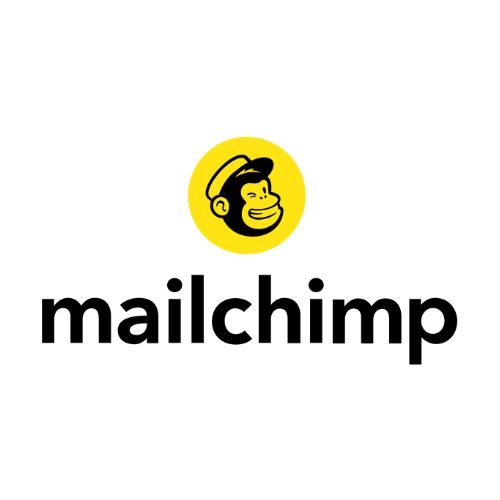
Mailchimp
Mailchimp is a popular marketing automation platform that enables businesses to create and manage email campaigns, build landing pages, and analyze marketing performance. It provides a user-friendly interface for designing visually appealing emails, segmenting audiences, and automating marketing workflows. Mailchimp is known for its versatility, catering to both small businesses and large enterprises, and it offers integrations with various third-party applications to enhance marketing capabilities.
Pros of Mailchimp:
Ease of Use: Mailchimp’s user-friendly interface makes it accessible for users with varying levels of technical expertise, allowing businesses to create and launch email campaigns quickly.
Marketing Automation: The platform offers robust marketing automation features, enabling businesses to set up automated email sequences based on customer behaviors and preferences.
Analytics and Reporting: Mailchimp provides detailed analytics and reporting tools, allowing businesses to track the performance of email campaigns, understand audience engagement, and make data-driven decisions.
Integration Capabilities: Mailchimp integrates seamlessly with numerous third-party tools and platforms, expanding its functionality and enabling businesses to connect their marketing efforts with other business processes.
Cons of Mailchimp:
Pricing Tiers: While Mailchimp offers a free plan, certain advanced features and higher email volume requirements may necessitate a move to a paid subscription, potentially impacting the overall cost for businesses.
Limited Advanced Automation in Free Plan: Some advanced automation features are only available in the paid plans, limiting the capabilities of the free version for businesses with complex automation needs.
Template Design Constraints: While Mailchimp provides a variety of templates, users may find certain design limitations compared to more advanced email marketing platforms.
Customer Support: Some users have reported challenges with customer support responsiveness, particularly for users on lower-tier plans.
In summary, Mailchimp is a widely used marketing automation tool known for its user-friendly interface and versatile features. Businesses should carefully consider their specific needs, budget constraints, and desired level of automation when choosing a plan. TLG uses Mailchimp for our email newsletter, and it allows us to easily segment our clients by location which makes it easier to send geographically focused info to our awesome clients.

Social Pilot
SocialPilot is a social media management and marketing platform that enables users to schedule, analyze, and manage social media posts across various platforms. It caters to businesses and digital marketers, offering features like content scheduling, social media analytics, team collaboration, and client management. SocialPilot aims to streamline social media workflows by providing a centralized platform for planning and executing social media strategies.
Pros of Social Pilot:
Multi-Platform Scheduling: SocialPilot supports scheduling posts across multiple social media platforms, including Facebook, Twitter, LinkedIn, Instagram, and more.
Content Collaboration: The platform facilitates team collaboration by allowing multiple users to contribute to content creation, scheduling, and management.
Affordable Pricing: SocialPilot offers competitive pricing plans, making it accessible for small businesses and individuals with budget constraints.
Social Media Analytics: The analytics features provide insights into post performance, audience engagement, and other key metrics to help users refine their social media strategies.
Cons of Social Pilot:
Learning Curve: Some users may experience a learning curve, especially when first navigating the platform’s features and settings.
Limited Advanced Features: While suitable for most social media management needs, SocialPilot may lack some of the advanced features offered by more robust and expensive social media tools.
Mobile App Limitations: The mobile app may have limitations compared to the desktop version, impacting the user experience for those who rely heavily on mobile devices.
Customer Support: Some users have reported mixed experiences with customer support, with occasional delays in response times and resolution of issues.
In summary, SocialPilot is a cost-effective social media management solution suitable for businesses and marketers. Users should evaluate their specific social media needs and the learning curve associated with the platform before committing to a plan. TLG uses Social Pilot to schedule social media content, especially the dankest memes.

Hootsuite
Hootsuite is a widely used social media management platform that enables users to schedule, publish, and analyze content across various social media channels. Designed for individuals, businesses, and marketing professionals, Hootsuite provides a centralized dashboard for managing multiple social accounts, monitoring social conversations, and measuring the performance of social media efforts. It supports popular platforms such as Facebook, Twitter, LinkedIn, Instagram, and more, offering a comprehensive solution for planning and executing social media strategies.
Pros of Hootsuite:
Multi-Platform Management: Hootsuite allows users to manage and schedule posts across multiple social media platforms from a single dashboard.
Analytics and Reporting: The platform provides robust analytics tools for tracking key performance metrics, audience engagement, and the effectiveness of social campaigns.
Team Collaboration: Hootsuite facilitates teamwork by enabling multiple users to collaborate on social media activities, with features like content approval workflows.
App Integrations: Hootsuite integrates seamlessly with a wide range of third-party apps, expanding its functionality and connecting with other tools for more comprehensive social media management.
Cons of Hootsuite:
Pricing Structure: Hootsuite’s pricing may be a consideration for smaller businesses, as some advanced features and larger usage thresholds are available in higher-tier plans.
Learning Curve: New users may experience a learning curve when navigating the platform due to its extensive set of features and customization options.
User Interface Updates: Some users have reported challenges adapting to interface changes over time, with occasional adjustments impacting user experience.
Limitations in Free Plan: While Hootsuite offers a free plan, certain advanced features and analytics capabilities are limited, potentially requiring an upgrade for users with more sophisticated social media needs.
In summary, Hootsuite is a comprehensive social media management tool suitable for businesses of varying sizes. Users should assess their specific requirements, budget constraints, and the learning curve associated with the platform’s features when considering it for their social media strategy.

Google Ads
Google Ads, formerly known as Google AdWords, is an online advertising platform developed by Google. It enables businesses to create and display ads on Google’s search engine results pages, websites within the Google Display Network, and on YouTube. Google Ads operates on a pay-per-click (PPC) model, where advertisers bid on keywords, and they pay for each click on their ads. The platform is a powerful tool for businesses looking to increase online visibility, drive website traffic, and generate leads or sales.
Pros of Google Ads:
Targeted Advertising: Google Ads allows advertisers to target specific demographics, locations, and user behaviors, ensuring that ads reach a highly relevant audience.
Measurable Results: The platform provides detailed analytics and performance metrics, allowing advertisers to track the success of their campaigns, measure ROI, and make data-driven decisions.
Flexible Budgeting: Advertisers can set daily or monthly budgets, providing flexibility and control over advertising spend.
Wide Reach: With a vast network including Google Search, Display Network, and YouTube, Google Ads offers access to a large and diverse online audience.
Cons of Google Ads:
Costs: Depending on competition for keywords, advertising costs can escalate, especially for high-demand or competitive industries.
Learning Curve: For newcomers, mastering the intricacies of Google Ads can be challenging, and without proper knowledge, advertisers may struggle to optimize campaigns effectively.
Click Fraud: Advertisers may face the challenge of click fraud, where competitors or malicious entities click on ads to deplete budgets without genuine interest. Google has worked to stop this and the offending clicked will stop seeing the ads if they aren’t converting on the website after a few clicks.
Ad Blockers: Some users employ ad blockers, potentially limiting the reach of display ads and reducing impressions.
In summary, Google Ads is a powerful online advertising platform with extensive reach and targeting capabilities. Advertisers should carefully manage budgets, continually optimize campaigns, and stay informed about changes in the advertising landscape to maximize the platform’s effectiveness.
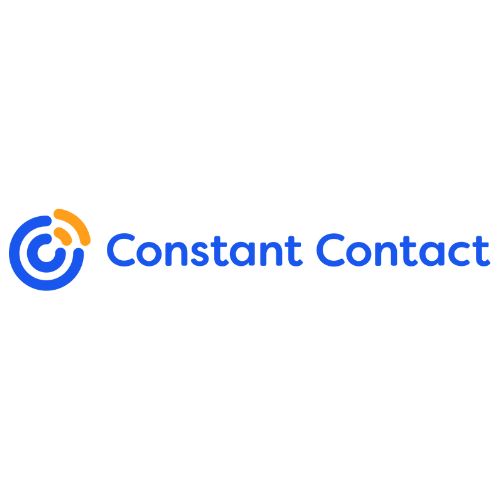
Constant Contact
Constant Contact is an email marketing and online survey platform designed to help businesses create, send, and track email campaigns. Catering to small businesses and nonprofits, Constant Contact offers features such as customizable email templates, list management, and analytics tools. It provides a user-friendly interface that simplifies the process of creating engaging email campaigns and newsletters. Additionally, Constant Contact offers features for event marketing and social media posting.
Pros of Constant Contact:
User-Friendly Interface: Constant Contact is known for its easy-to-use platform, making it accessible for users with varying levels of technical expertise.
Email Templates: The platform offers a variety of customizable email templates, helping businesses create visually appealing and professional-looking emails.
List Management: Constant Contact provides tools for managing and segmenting email lists, allowing businesses to target specific audiences with tailored content.
Analytics and Reporting: Users can access detailed analytics to measure the success of email campaigns, track open rates, click-through rates, and gather insights for future improvements.
Cons of Constant Contact:
Pricing Structure: Some users may find Constant Contact’s pricing to be higher compared to other email marketing platforms, especially for businesses with growing subscriber lists.
Limited Automation in Basic Plans: Advanced automation features are only available in higher-tier plans, potentially limiting functionality for users on basic plans.
Integration Limitations: While Constant Contact integrates with various third-party applications, the number of available integrations may be more limited compared to some other email marketing platforms.
Learning Curve for Advanced Features: Users may experience a learning curve when exploring more advanced features, especially if they are new to email marketing.
In summary, Constant Contact is a user-friendly email marketing platform with a focus on simplicity and effectiveness. Businesses should evaluate their specific needs, budget constraints, and desired features when considering it for their email marketing efforts.
Venue Management
Venue management software, like Social Tables or Planning Pod, aids event professionals in organizing and optimizing event spaces. It helps with seating arrangements, floor planning, and coordination with venue staff. Some of these software sets are absolutely must-have if you own or manage a venue.

Honeybook
HoneyBook is a comprehensive business management platform designed for creative entrepreneurs and small businesses, particularly those in fields like event planning, photography, and design. The platform streamlines various aspects of business operations, offering tools for client communication, project management, contract creation, invoicing, and payment processing. HoneyBook aims to simplify workflows, enhance collaboration, and provide a centralized hub for businesses to manage their projects and client interactions efficiently.
Pros of Honeybook:
All-in-One Platform: HoneyBook consolidates various business management tasks, offering a centralized solution for client communication, project tracking, and financial management.
Customizable Workflows: Users can tailor workflows to their specific needs, creating customized proposals, contracts, and invoices that align with their brand and business processes.
Client Collaboration: The platform facilitates seamless communication with clients, allowing for file sharing, collaboration on project details, and real-time updates on project progress.
Automation Features: HoneyBook includes automation features for tasks like follow-ups, payment reminders, and scheduling, helping businesses save time and stay organized.
Cons of Honeybook:
Pricing: Some users may find HoneyBook’s pricing relatively higher compared to other solutions, particularly for smaller businesses or freelancers with limited budgets.
Learning Curve: While designed to be user-friendly, there might be a learning curve for new users, especially those transitioning from other business management tools.
Limited Integrations: While HoneyBook integrates with certain third-party tools, the range of available integrations may be more limited compared to other business management platforms.
Feature Set: Depending on specific business needs, some users may find that HoneyBook lacks certain advanced features provided by more specialized software solutions.
In summary, HoneyBook is a versatile business management platform with a focus on creative professionals. Businesses should carefully assess their specific requirements, budget considerations, and the learning curve associated with the platform when considering it for their operations.

Planning Pod
Planning Pod is an event management and planning software designed to assist event professionals, wedding planners, and businesses in organizing and executing various types of events. The platform offers a suite of tools for managing event details, including guest lists, budgets, schedules, and floor plans. With features like online registration, document management, and collaboration tools, Planning Pod aims to streamline event planning workflows and enhance communication among team members and clients.
Pros of Planning Pod:
Comprehensive Event Tools: Planning Pod provides a range of tools for different aspects of event planning, from guest management and budgeting to floor plans and task tracking.
Client Collaboration: The platform facilitates collaboration with clients through shared project spaces, allowing them to access event details, make updates, and communicate with the planning team.
Online Registration: Planning Pod supports online event registration and ticketing, simplifying the process for both organizers and attendees.
Customizable Templates: Users can utilize customizable templates for contracts, proposals, and other documents, saving time and ensuring consistency in communication.
Cons of Planning Pod:
Learning Curve: Some users may experience a learning curve when getting accustomed to the platform, especially if they are new to event planning software.
Pricing Structure: The pricing structure may be a consideration for smaller businesses or individual planners, as it varies based on the number of events and features needed.
Integration Limitations: While Planning Pod integrates with certain third-party applications, users may find the available integrations more limited compared to other event management platforms.
Mobile App Functionality: While Planning Pod has a mobile app, some users have reported limitations in terms of functionality and user experience compared to the desktop version.
In summary, Planning Pod offers a comprehensive set of tools for event planning, making it suitable for professionals managing various types of events. Prospective users should consider their specific needs, budget constraints, and the learning curve associated with the platform when evaluating it for their event management workflows.
Financial Management
Accounting software (QuickBooks, FreshBooks) can help event professionals manage budgets, track expenses, and generate financial reports. This ensures better financial control and transparency throughout the event planning process.
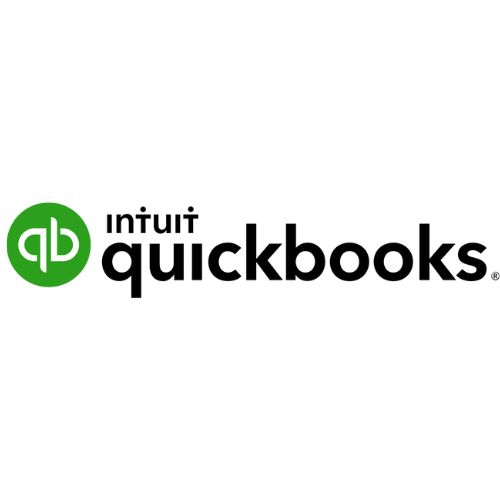
Quickbooks
QuickBooks is a widely-used accounting software designed for small and medium-sized businesses. Developed by Intuit, QuickBooks offers a range of financial management tools to help businesses track expenses, manage invoices, and streamline overall accounting processes. The platform provides features for bookkeeping, payroll, tax preparation, and financial reporting, catering to the diverse needs of businesses across various industries. QuickBooks is available in both desktop and online versions, offering flexibility in how businesses choose to manage their accounting tasks.
Pros of Quickbooks:
User-Friendly Interface: QuickBooks is known for its user-friendly interface, making it accessible for individuals with limited accounting knowledge.
Comprehensive Financial Tools: The platform provides a comprehensive suite of financial management tools, including invoicing, expense tracking, and robust reporting features.
Integration Capabilities: QuickBooks integrates seamlessly with numerous third-party applications and financial institutions, allowing for a more connected and efficient workflow.
Scalability: QuickBooks can accommodate the needs of small businesses and scale as they grow, providing a flexible solution for businesses at different stages of development.
Cons of Quickbooks:
Cost: Some users may find the pricing structure of QuickBooks to be relatively higher compared to certain other accounting software options, particularly for advanced features.
Learning Curve for Advanced Features: While the basic functionalities are user-friendly, users may experience a learning curve when trying to utilize more advanced features.
Customer Support: Some users have reported challenges with customer support responsiveness, particularly those on lower-tier plans.
Cloud-Based Version Limitations: The online version of QuickBooks may have limitations compared to the desktop version, and users should carefully evaluate the features offered in each version based on their specific needs.
In summary, QuickBooks is a widely trusted accounting solution offering a comprehensive set of financial tools. Businesses should consider factors such as their budget, the scale of their operations, and specific accounting requirements when choosing between the desktop and online versions of QuickBooks. TLG has used Quickbooks Online for years and it allows us to keep track of our complicated financial structure across 40+ locations.
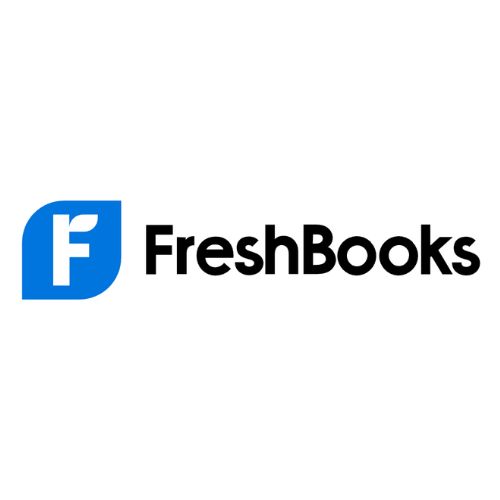
Freshbooks
FreshBooks is a cloud-based accounting software designed for small businesses and freelancers to simplify financial management. It offers tools for invoicing, expense tracking, time tracking, and project management, providing a comprehensive solution for managing business finances. With a user-friendly interface and automation features, FreshBooks aims to streamline accounting processes and help users save time on administrative tasks. The platform is accessible online, allowing users to manage their finances from anywhere with an internet connection.
Pros of Freshbooks:
User-Friendly Interface: FreshBooks is known for its intuitive and user-friendly design, making it easy for individuals with varying levels of accounting knowledge to navigate.
Invoicing and Payment Features: The platform offers robust invoicing features, including the ability to create professional-looking invoices, accept online payments, and automate recurring billing.
Expense Tracking and Reporting: Users can track expenses, categorize spending, and generate detailed financial reports to gain insights into their business finances.
Client Collaboration: FreshBooks facilitates collaboration with clients through features like client portals, allowing clients to access estimates, invoices, and project details.
Cons of Freshbooks:
Pricing Structure: Some users may find FreshBooks pricing to be relatively higher compared to certain other accounting solutions, particularly for businesses with more extensive accounting needs.
Limited Features for Larger Businesses: While suitable for small businesses and freelancers, FreshBooks may lack some of the advanced features required by larger enterprises.
Learning Curve for Advanced Features: Users new to accounting software may experience a learning curve when exploring more advanced features beyond basic invoicing and expense tracking.
Limited Project Management Features: While FreshBooks includes project management tools, users with complex project management needs may find the features somewhat limited compared to dedicated project management solutions.
In summary, FreshBooks is a user-friendly accounting solution catering to small businesses and freelancers. Businesses should consider factors such as their budget, specific accounting requirements, and the learning curve associated with the platform when evaluating it for their financial management needs.
In summary, utilizing software in event planning enhances efficiency, improves communication, and provides valuable insights. It allows event professionals to deliver better experiences for clients and attendees while effectively managing the various complexities associated with event planning. This is clearly not an all-encompassing list of all the software that all event professionals will use, but it is a place to start if you are building your event business or are looking for improvements for your current systems.
Triangle Lawn Games is a yard game rental company based in Raleigh, NC and serving major cities all of the US – from Los Angeles to Houston to Chicago to Boston and in-between. We provide rentals, custom games, cornhole tournament facilitation and NERF rentals and more. If you want to add easy and affordable fun to your party find a location today to get a free quote!

